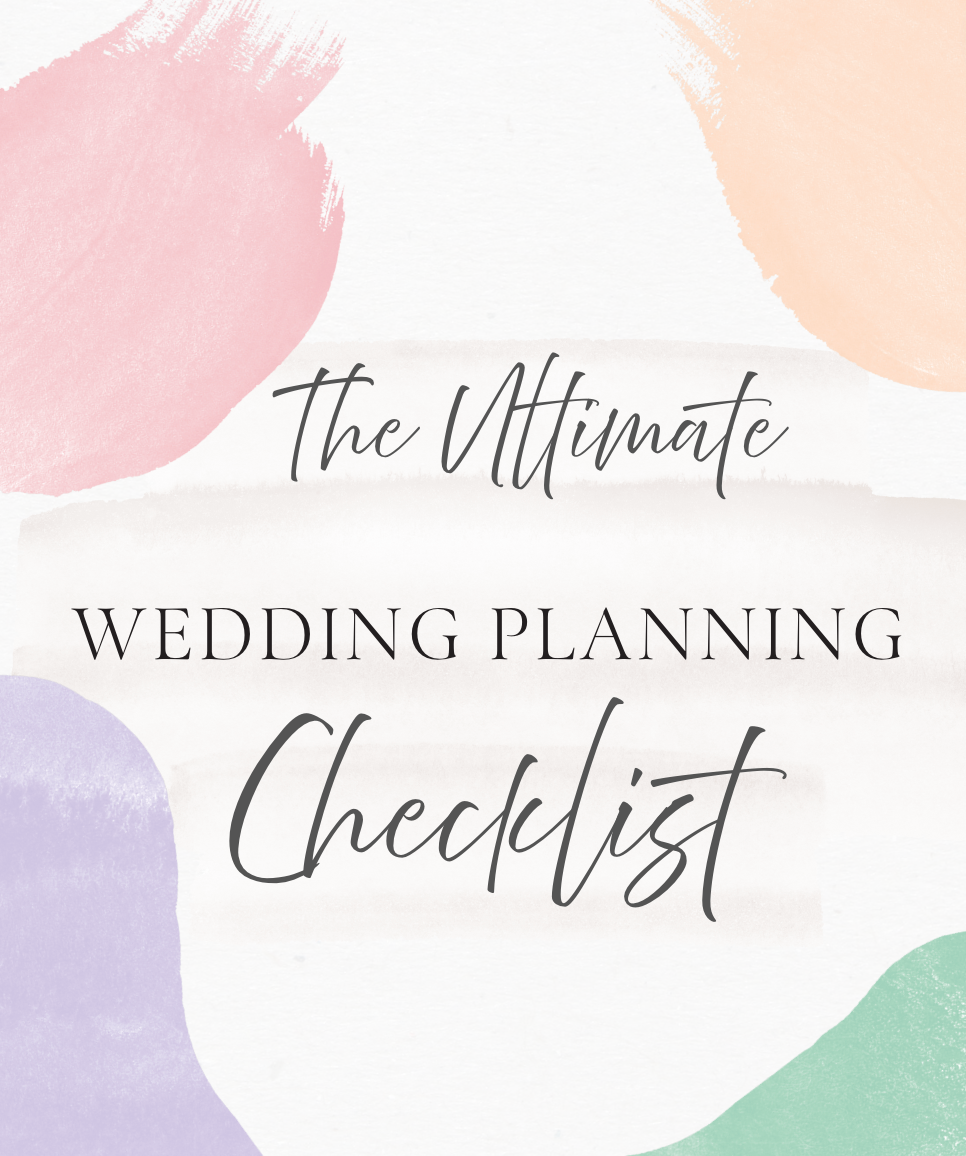How to Create a Wedding Budget and Manage Your Spending: A Complete Guide for UK Couples

Planning a wedding is one of life's most exciting milestones, but it can also be one of the most financially overwhelming. With the average UK wedding now costing around £20,000-£25,000, creating a realistic budget and sticking to it has never been more crucial. Whether you're dreaming of an intimate countryside gathering or a grand London celebration, this guide will help you navigate wedding finances with confidence and clarity.
Why Creating a Wedding Budget Matters
Before diving into spreadsheets and calculations, it's important to understand why budgeting is your wedding planning superpower. A well-planned budget doesn't limit your dreams—it gives you the roadmap to achieve them realistically. It prevents overspending that could impact your future financial goals, reduces stress during planning, and helps you make informed decisions about where to splurge and where to save.
Step 1: Determine Your Total Wedding Budget
Start with What You Have
Begin by honestly assessing your financial situation. Calculate how much you currently have saved for your wedding, how much you can realistically save each month until your wedding date, and any contributions from family members (get these confirmed in writing).
The 50/30/20 Rule for Weddings
As a general guideline, financial experts suggest spending no more than 10-15% of your annual household income on your wedding. However, every couple's situation is unique. Consider your other financial priorities like student loans, mortgage payments, and future savings goals.
Setting Realistic Expectations
Research average wedding costs in your region to ground your expectations. In the UK, wedding costs vary significantly by location - a £15,000 budget in Wales or Northern England might go much further than in London or the South East, where venue costs can be substantially higher. Consider that London weddings often cost 30-50% more than the national average.
Step 2: Break Down Your Budget by Category
The Wedding Budget Breakdown Formula
Here's how most couples allocate their wedding budget:
Reception (40-50% of total budget)
- Venue rental
- Catering and bar service
- Service fees and gratuities
Attire and Beauty (8-10%)
- Wedding dress and alterations
- Groom's attire
- Beauty services (hair, makeup, nails)
Photography and Videography (10-15%)
- Photographer
- Videographer
- Engagement photos
Flowers and Decorations (8-10%)
- Bridal bouquet and boutonnieres
- Ceremony decorations
- Reception centerpieces
Music and Entertainment (8-10%)
- DJ or band
- Special lighting
- Additional entertainment
Transportation (3-5%)
- Wedding day transportation
- Guest transportation if needed
Invitations and Stationery (2-3%)
- Save the dates
- Invitations
- Programs and menus
Miscellaneous and Emergency Fund (5-10%)
- Marriage license
- Officiant fees
- Unexpected expenses
Customizing Your Breakdown
These percentages are starting points, not rules. Adjust based on your priorities. If photography is your top priority, you might allocate 20% there and reduce spending elsewhere. The key is ensuring your total doesn't exceed your budget limit.
Step 3: Research and Get Quotes
The Quote Collection Process
Start gathering quotes at least 8-12 months before your wedding date. Contact multiple vendors in each category to understand pricing ranges. Be specific about your needs, guest count, and date when requesting quotes.
Hidden Costs to Watch For
Many couples are surprised by additional fees that aren't immediately obvious:
- Service charges and VAT (20% on most wedding services)
- Overtime fees for venues and vendors
- Cake cutting fees at venues (typically £2-5 per person)
- Corkage fees if bringing your own alcohol (£8-15 per bottle)
- Delivery and setup fees
- Evening food charges for additional guests
Creating a Vendor Comparison System
Develop a simple spreadsheet to compare vendors. Include base price, what's included, additional fees, and your overall impression. This makes decision-making much easier when you're comparing multiple options.
Step 4: Tools for Budget Management
Digital Tools and Apps
Spreadsheet Templates: Create or download a wedding budget spreadsheet with categories, estimated costs, actual costs, and remaining balance.
Wedding Planning Apps: Apps like Bridebook, Hitched, and WeddingWire UK offer built-in budget tracking tools that sync across devices and include UK-specific pricing information.
Banking Tools: Consider opening a dedicated wedding ISA or savings account to keep wedding funds separate. Some UK banks offer wedding savings accounts with competitive interest rates.
The Envelope Method
For couples who prefer cash management, allocate cash into labeled envelopes for each wedding category. When an envelope is empty, you've reached your limit for that category.
Regular Budget Check-ins
Schedule monthly budget reviews with your partner. Discuss what you've spent, what's coming up, and any adjustments needed. This prevents surprises and keeps you both accountable.
Step 5: Smart Spending Strategies
The 80/20 Rule
Identify the 2-3 elements that matter most to you (perhaps photography and food), and allocate 80% of your budget to these priorities. Use the remaining 20% for less important elements.
Timing Your Purchases
Book Early for Better Rates: Popular vendors often offer better pricing for bookings made far in advance.
Off-Season Savings: Consider weekday weddings, winter ceremonies (November-March), or avoiding peak summer months for significant savings. Many UK venues offer 20-40% discounts for off-peak dates.
Bank Holiday Considerations: Be aware that bank holiday weekends often come with premium pricing from venues and suppliers.
DIY vs. Professional Services
Carefully consider what you can realistically DIY without adding stress. Great DIY projects include:
- Simple centerpieces
- Wedding favors
- Some stationery elements
- Playlist creation
Avoid DIYing complex items like your wedding cake, photography, or anything requiring special skills or equipment.
Step 6: Managing Overspending
When You Go Over Budget
If you find yourself exceeding your budget, don't panic. First, identify where the overspending occurred and why. Then, look for areas to cut back in other categories or consider if you can adjust your total budget slightly.
Cost-Cutting Strategies That Don't Compromise Quality
Guest List Management: Your guest count is the biggest factor in wedding costs. Reducing your list by 20 people could save thousands.
Venue Flexibility: Consider non-traditional venues like National Trust properties, village halls, pubs with function rooms, or registry offices with beautiful grounds that might offer better value than traditional wedding venues.
Seasonal Menu Choices: Work with your caterer to choose British seasonal ingredients - spring lamb, summer berries, autumn game, or winter root vegetables can be more affordable and fresher.
Alcohol Alternatives: Consider Pimm's stations, local ale selections, or prosecco instead of champagne. Many UK venues allow you to provide your own alcohol for a corkage fee, which can save hundreds of pounds.
Flower Alternatives: Use more British greenery like eucalyptus, ivy, or ferns mixed with seasonal British flowers. Consider potted plants as centrepieces that guests can take home.
The Emergency Fund
Always maintain a 5-10% emergency fund for unexpected expenses. This buffer prevents small oversights from derailing your entire budget.
Step 7: Tracking and Adjusting
Monthly Budget Reviews
Set aside time each month to review your spending, update your budget with actual costs, and plan for upcoming expenses. This habit prevents surprises and helps you stay on track.
Documentation System
Keep all contracts, receipts, and payment records organized. Create both digital and physical files for important documents. This organization is crucial for tracking payments and resolving any disputes.
Communication with Your Partner
Regular budget discussions with your partner prevent misunderstandings and ensure you're both comfortable with spending decisions. Be honest about concerns and celebrate when you find great deals or stay under budget in certain categories.
Common Budgeting Mistakes to Avoid
Underestimating Guest Count Impact
Remember that nearly every wedding expense is affected by guest count. Inviting 150 people instead of 100 doesn't just increase catering costs—it affects venue size, invitations, favors, and more.
Forgetting About VAT and Service Charges
Many couples forget to factor in VAT (20% on most wedding services) and optional service charges, which can add 20-25% to your total vendor costs. Always ask vendors if their quotes include VAT and what service charges, if any, are expected.
Not Reading Contracts Carefully
Hidden fees often lurk in vendor contracts. Read everything carefully and ask questions about anything unclear. Understanding cancellation policies is also crucial.
Waiting Too Long to Book
Procrastination can cost you money. Popular vendors book up quickly, and waiting might force you to choose more expensive alternatives or pay rush fees.
UK-Specific Wedding Budget Considerations
Registry Office vs. Religious Ceremony Costs
In the UK, you'll need to budget for:
- Registry office fees: £57 for the ceremony, plus £4 for each certificate
- Religious ceremony: Often involves church fees, organist costs, and potentially bell-ringing fees
- Civil ceremony at licensed venues: Usually included in venue packages but check what's covered
Licensing and Legal Requirements
Budget approximately £100-150 for:
- Giving notice fees (£35 per person)
- Marriage/civil partnership certificates
- Potential visa costs for international partners
Transport Considerations
UK couples often need to budget for:
- Wedding car hire (£200-800 depending on style and distance)
- Potential coach hire for guests if ceremony and reception are at different locations
- Parking fees at venues, especially in city centres
Remember that fuel costs and parking charges can add up, particularly for London venues where congestion charges may apply.
Final Tips for Wedding Budget Success
Creating and managing a wedding budget successfully requires discipline, communication, and flexibility. Remember that your wedding budget should reflect your values and priorities as a couple. Don't let social media or family pressure push you to spend beyond your means.
Start planning early, do your research, and don't be afraid to negotiate with suppliers. Many UK vendors are willing to work within your budget or offer package deals that provide better value, especially during quieter periods.
Consider the unique opportunities that UK weddings offer - from beautiful countryside venues to historic castles, charming village halls to elegant city locations. Your perfect wedding venue might be more affordable than you think if you're flexible with timing and location.
Most importantly, remember that your wedding day is about celebrating your love and commitment. A beautiful, meaningful wedding is absolutely possible within any budget when you plan thoughtfully and spend intentionally.
Your wedding budget is not just about managing money—it's about starting your marriage with smart financial habits and clear communication. These skills will serve you well long after your wedding day is over, whether you're saving for a house deposit, planning for children, or building your future together.
Ready to Start Planning?
Begin by sitting down with your partner this week to discuss your total budget number. Once you have that figured out, start researching vendors and getting quotes. Remember, the earlier you start, the more options you'll have and the better deals you're likely to find.
Your dream wedding is absolutely achievable with the right planning and budgeting approach. Take it one step at a time, stay organized, and enjoy the process of planning your special day!



